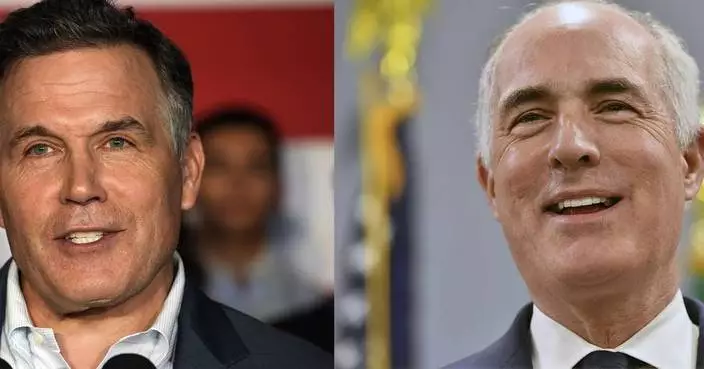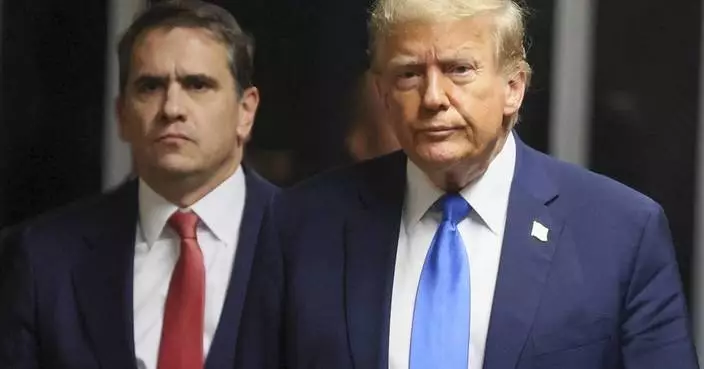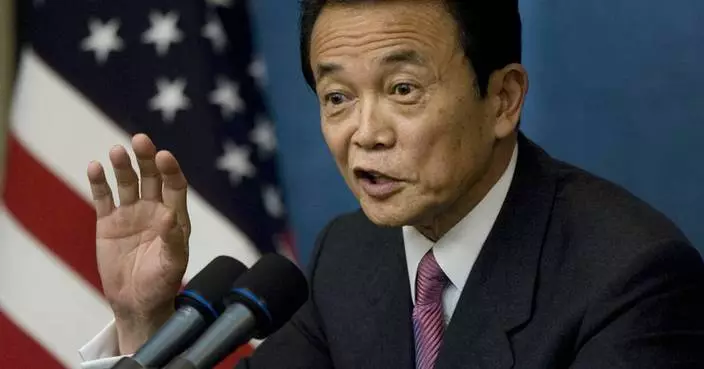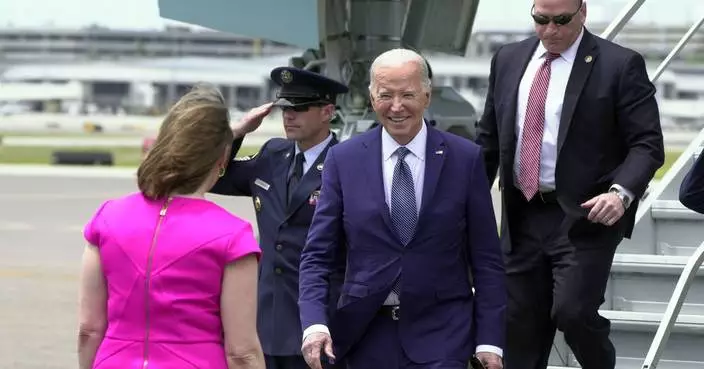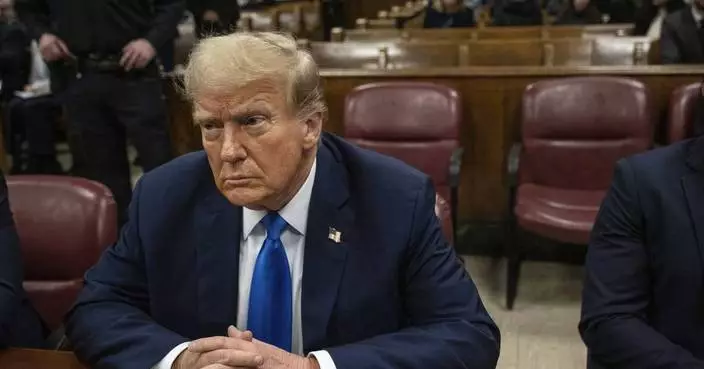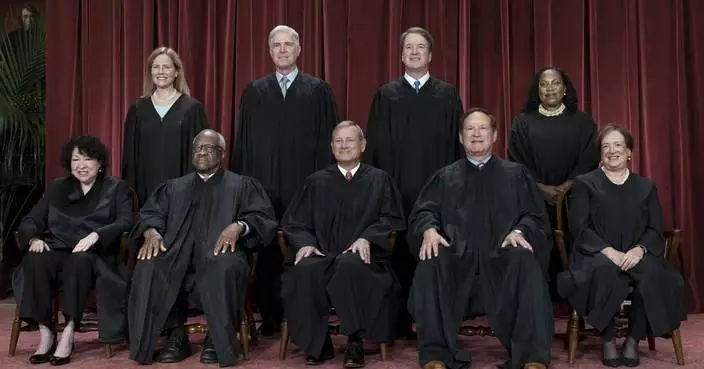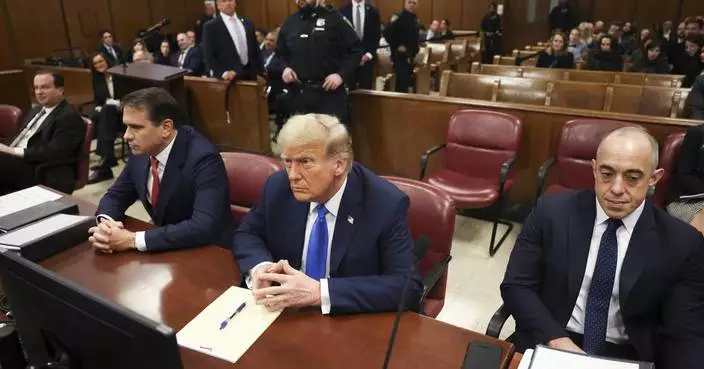President Donald Trump and Japanese Prime Minister Shinzo Abe said Wednesday they had failed to reach a deal that would exempt Japan from new U.S. steel and aluminum tariffs, as Abe had wanted.
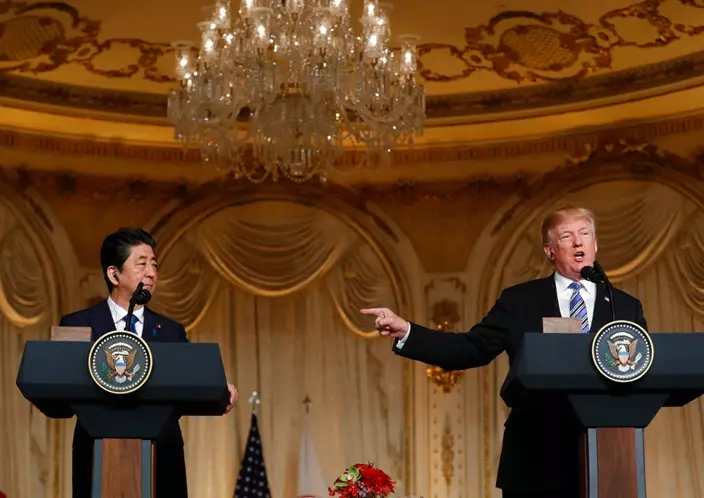
President Donald Trump gestures during a news conference with Japanese Prime Minister Shinzo Abe at Trump's private Mar-a-Lago club, Wednesday, April 18, 2018, in Palm Beach, Fla. (AP Photo/Pablo Martinez Monsivais)
Instead, the leaders announced they had agreed to start talks on a new "free, fair and reciprocal" trade agreement between the two countries following two days of talks.
Click to Gallery
President Donald Trump and Japanese Prime Minister Shinzo Abe said Wednesday they had failed to reach a deal that would exempt Japan from new U.S. steel and aluminum tariffs, as Abe had wanted.
Instead, the leaders announced they had agreed to start talks on a new "free, fair and reciprocal" trade agreement between the two countries following two days of talks.
It was a disappointment for Japan. Most other key U.S. allies — among them Australia, Canada, the European Union and Mexico — have already been granted exemptions to Trump's protectionist measures. And Japan has previously voiced reluctance to negotiating a bilateral trade deal with the U.S., saying it would prefer the U.S. rejoin the Trans-Pacific Partnership.
Trump said it was clear from their discussions that the abductees were "one of the truly most important things on Shinzo's mind." Trump said he wanted to see the "families reunited as soon as possible."
Trump expressed optimism Wednesday, saying that officials had been working "very diligently" to secure the Americans' return and that there was a "good chance" it would happen.
"If we can come to an arrangement on a new deal, that would certainly be something we would discuss," Trump said when asked about the tariffs during a joint press conference at his private Mar-a-Lago club.
But he said the current trade deficit between the two countries was too high to merit an exemption now. According to the U.S. Department of Commerce, the trade deficit was $56.1 billion last year.
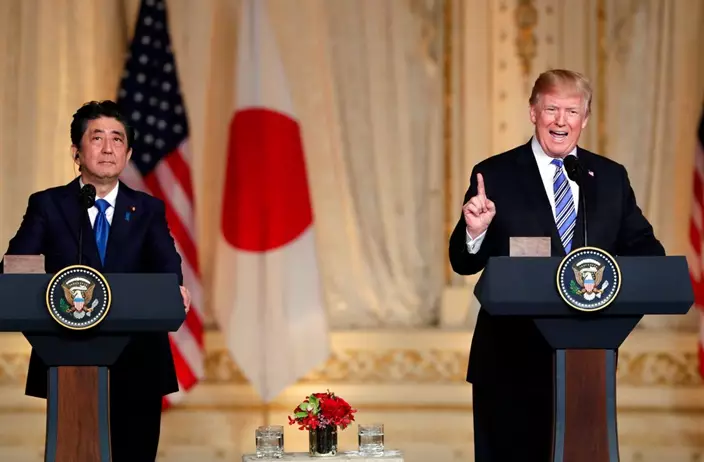
Japanese Prime Minister Shinzo Abe, left, listens as President Donald Trump speaks during a news conference at Trump's private Mar-a-Lago club, Wednesday, April 18, 2018, in Palm Beach, Fla. (AP Photo/Lynne Sladky)
It was a disappointment for Japan. Most other key U.S. allies — among them Australia, Canada, the European Union and Mexico — have already been granted exemptions to Trump's protectionist measures. And Japan has previously voiced reluctance to negotiating a bilateral trade deal with the U.S., saying it would prefer the U.S. rejoin the Trans-Pacific Partnership.
But Abe, whose visit comes as Trump prepares for a historic summit with North Korean leader Kim Jong Un, appeared to win assurances from Trump that he and the president were on the same page when it comes to the Kim meeting.
Perhaps the most significant for Abe: Trump's promise to raise with Kim the issue of Japanese citizens who have been abducted by the North.
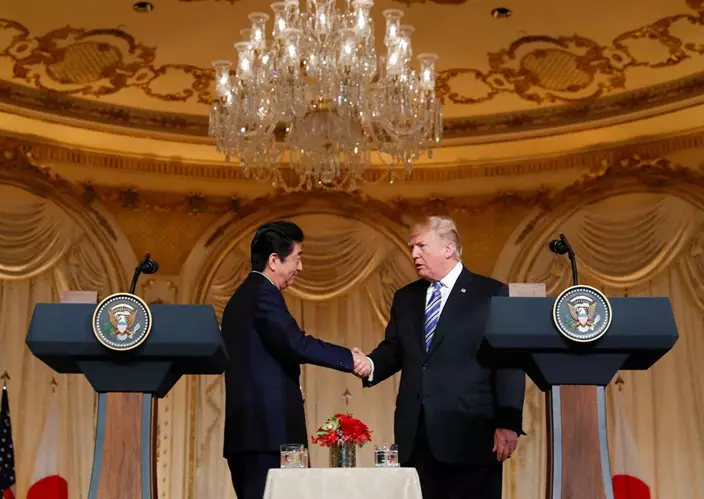
President Donald Trump and Japanese Prime Minister Shinzo Abe shakes hands during a news conference at Trump's private Mar-a-Lago club, Wednesday, April 18, 2018, in Palm Beach, Fla. (AP Photo/Pablo Martinez Monsivais)
Trump said it was clear from their discussions that the abductees were "one of the truly most important things on Shinzo's mind." Trump said he wanted to see the "families reunited as soon as possible."
Pyongyang has acknowledging abducting 13 Japanese, while Tokyo maintains North Korea abducted 17. Five have been returned to Japan. North Korea says eight others have died and denies the remaining four entered its territory. Japan has demanded further investigation, and Abe has made the issue one of his top priorities.
The U.S. has also been pushing for the release of three Americans held captive. CIA Director Mike Pompeo raised their plight during his meeting earlier this month with Kim, according to a senior White House official who was not authorized to disclose the sensitive discussions and spoke to The Associated Press on condition of anonymity.
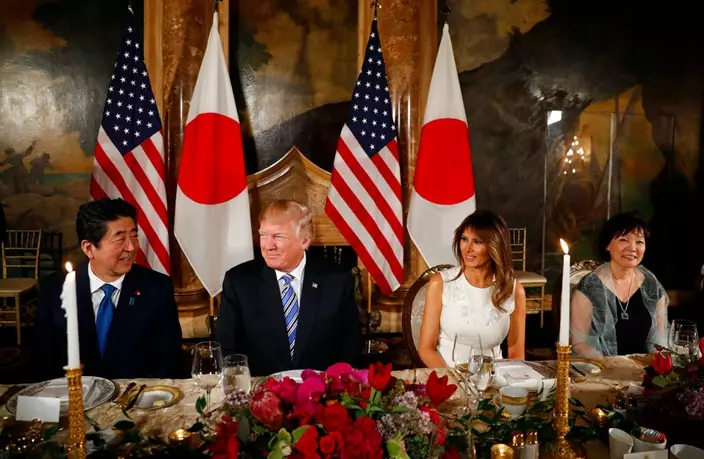
President Donald Trump and first lady Melania Trump host Japanese Prime Minister Shinzo Abe and his wife Akie Abe for dinner at Trump's private Mar-a-Lago club, Wednesday, April 18, 2018, in Palm Beach, Fla. (AP Photo/Pablo Martinez Monsivais)
Trump expressed optimism Wednesday, saying that officials had been working "very diligently" to secure the Americans' return and that there was a "good chance" it would happen.
But on trade, Trump made clear he would prefer a bilateral trade deal with Japan instead of rejoining the 11-nation TPP Pacific Rim trade pact.
"I don't want to go back into TPP, but if they offered us a deal that I can't refuse on behalf of the United States, I would do it," Trump said. Still, he added, "I like bilateral better. I think it's better for our country, I think it's better for our workers, and I much would prefer a bilateral deal, a deal directly with Japan."
Trump and Abe also appeared to agree to disagree on the issue of steel and aluminum imports. Abe argued during the press conference that Japanese imports "would not exert any negative influence" on the security of the United States and said the high quality of Japan's steel and aluminum products would be difficult to replace.
The visit included a mix of business and pleasure. Trump and Abe spent Wednesday morning golfing at one of the president's nearby golf courses. On Tuesday evening, the president and first lady hosted Abe and his wife at an intimate al fresco dinner on Mar-a-Lago's patio. And the group reconvened for a second, larger dinner Wednesday evening.
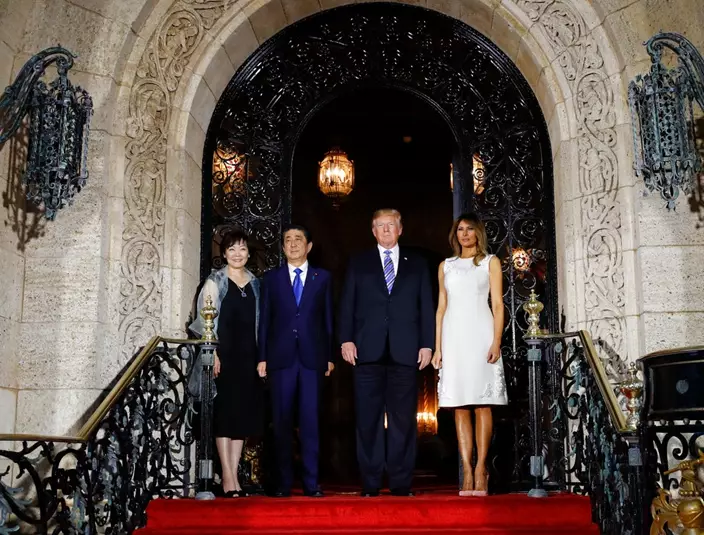
President Donald Trump and first lady Melania Trump host Japanese Prime Minister Shinzo Abe and his wife Akie Abe, for dinner at Trump's private Mar-a-Lago club, Wednesday, April 18, 2018, in Palm Beach, Fla. (AP Photo/Pablo Martinez Monsivais)
Despite their disagreements, officials from both countries insist the personal relationship that Trump and Abe share has never been stronger. The leaders have bonded over "golf diplomacy" in both the U.S. and Japan, and U.S. officials note that Trump has met with Abe more than any other foreign leader.
During the trip, Abe praised Trump for his courage in agreeing to meet with Kim and said that Kim's willingness to meet was a sign that the pressure campaign against the North was working.
But he also urged caution, saying there should be "no reward" given to the North just because the reclusive country is responding to dialogue. He said that "maximum pressure should be maintained."
On Tuesday night, media outlets including The Associated Press reported that Pompeo recently traveled in secret to North Korea to meet with Kim ahead of a U.S.-North Korea summit planned in the next two months. Trump confirmed the meeting in a tweet Wednesday, saying "a good relationship was formed" heading into his anticipated summit with Kim.
"Denuclearization will be a great thing for World, but also for North Korea!" Trump wrote.
WASHINGTON (AP) — The Supreme Court hears arguments Thursday over whether Donald Trump is immune from prosecution in a case charging him with plotting to overturn the results of the 2020 presidential election.
It's a historic day for the court, with the justices having an opportunity to decide once and for all whether former presidents can be prosecuted for official acts they take while in the White House.
But between a decades-old court case about Richard Nixon, and an obscure constitutional provision about presidential impeachments, there are likely to be some unfamiliar concepts and terms thrown about.
Here are some tips to help follow everything:
The court marshal will bang the gavel at 10 a.m. EDT and Chief Justice John Roberts will announce soon after the start of arguments in Donald J. Trump vs. United States of America, as the case is called.
The session easily could last two hours or more.
There are no cameras in the courtroom, but since the pandemic, the court has livestreamed its argument sessions. Listen live on apnews.com/live/trump-supreme-court-arguments-updates or the court’s website at www.supremecourt.gov. C-SPAN also will carry the arguments at www.c-span.org.
Expect to hear talk about the impeachment process and the relationship, if any, to criminal prosecution.
Central to Trump's immunity argument is the claim that only a former president who was impeached and convicted by the Senate can be criminally prosecuted. Trump was impeached over his efforts to undo the election in the run-up to the violent riot at the U.S. Capitol on Jan. 6, 2021. But he was acquitted, not convicted, by the Senate in 2021.
Trump's lawyers cite as backup for their argument a provision of the Constitution known as the Impeachment Judgment Clause that says an officeholder convicted by the Senate shall nevertheless be “liable and subject to indictment, trial, judgment and punishment” in court.
Prosecutors say the Trump team is misreading the clause and that conviction in the Senate is not a prerequisite for a courtroom prosecution.
There's going to be plentiful discussion about Nixon but not necessarily for the reasons one might think.
Trump's team has repeatedly drawn attention to a 1982 case, Nixon v. Fitzgerald, in which the Supreme Court held that a former president cannot be sued in civil cases for their actions while in office. The case concerned the firing of an Air Force analyst, A. Ernest Fitzgerald, who testified before Congress about cost overruns in the production of a transport plane.
Fitzgerald's lawsuit against Nixon, president at the time of the 1970 termination, was unsuccessful, with Justice Lewis Powell writing for the court that presidents are entitled to absolute immunity from civil lawsuits for acts that fall within the “outer perimeter” of their official duties.
Importantly, that decision did not shield presidents from criminal liability, though Trump's team says the same analysis should apply.
Special counsel Jack Smith's team is also likely to bring up a separate Supreme Court decision involving Nixon that they say bolsters their case — a 1974 opinion that forced the president to turn over incriminating White House tapes for use in the prosecutions of his top aides.
Prosecutors have also noted that Nixon accepted rather than declined a subsequent pardon from President Gerald Ford — a recognition by the men, they say, “that a former President was subject to prosecution.”
The justices are known to love presenting hypothetical scenarios to lawyers as a way of testing the outer limits of their arguments. Expect that practice to be on full display Thursday as the court assesses whether former presidents are entitled to absolute immunity.
Already, Trump's lawyers have warned that if the prosecution is permitted to go forward, it would open the floodgates to criminal charges against other presidents, such as for authorizing a drone strike that kills a U.S. citizen or for giving false information to Congress that leads the country into war.
In a memorable moment during arguments in January before a federal appeals court, a judge asked a Trump lawyer whether a president who ordered a Navy SEAL to assassinate a political rival could be prosecuted.
Look for Smith's team to try to draw a sharp distinction between acts that it says are quintessential exercises of presidential power — such as ordering a drone strike during war — to the acts that Trump is accused of in this case, such as participating in a scheme to organize fake electors in battleground states. Those acts, prosecutors say, are personal acts and not presidential ones.
Associated Press writer Mark Sherman contributed to this report.
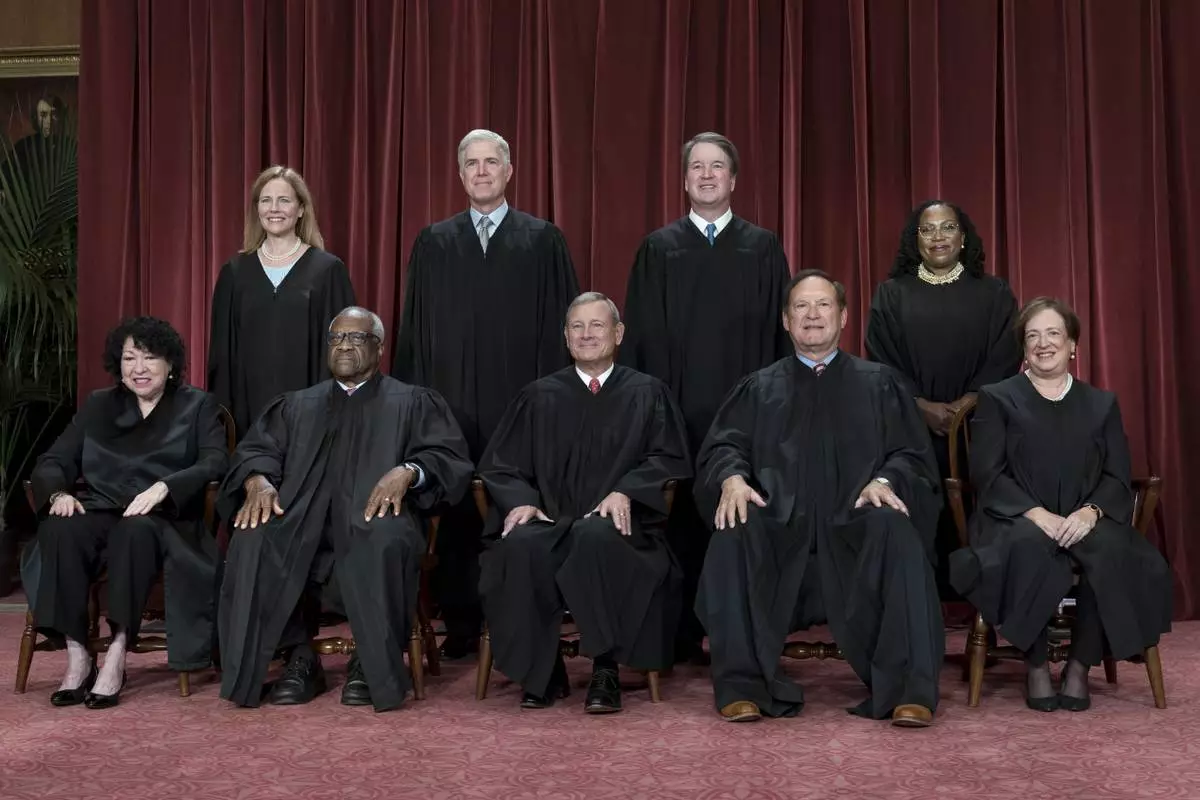
FILE - Members of the Supreme Court sit for a new group portrait following the addition of Associate Justice Ketanji Brown Jackson, at the Supreme Court building in Washington, on Oct. 7, 2022. Bottom row, from left, Associate Justice Sonia Sotomayor, Associate Justice Clarence Thomas, Chief Justice of the United States John Roberts, Associate Justice Samuel Alito, and Associate Justice Elena Kagan. Top row, from left, Associate Justice Amy Coney Barrett, Associate Justice Neil Gorsuch, Associate Justice Brett Kavanaugh, and Associate Justice Ketanji Brown Jackson. The core issue being debated before the Supreme Court on April 25, 2024, boils down to this: Whether a former president is immune from prosecution for actions taken while in office — and, if so, what is the extent of the immunity? (AP Photo/J. Scott Applewhite)
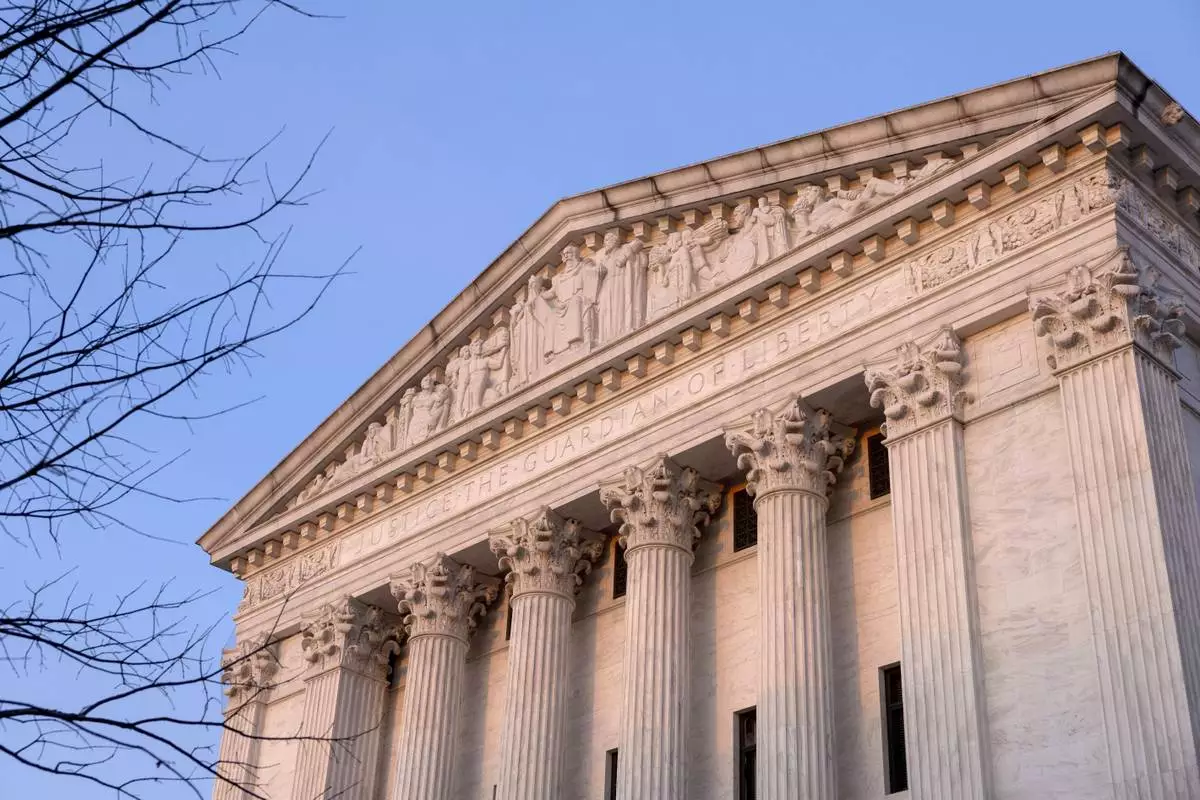
FILE - The Supreme Court of the United States is seen in Washington, March 26, 2024. The Supreme Court is hearing arguments this week with profound legal and political consequences: whether former President Donald Trump is immune from prosecution in a federal case charging him with plotting to overturn the results of the 2020 election. (AP Photo/Amanda Andrade-Rhoades, File)
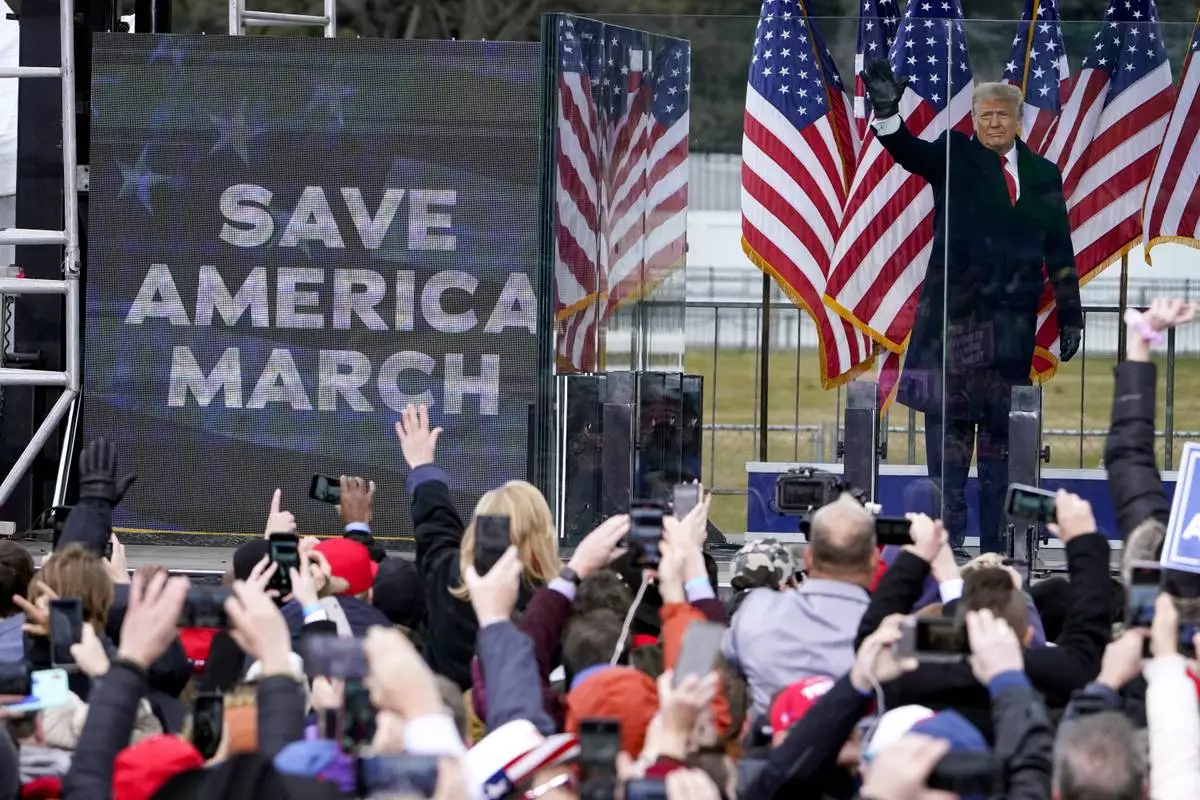
FILE - President Donald Trump arrives to speak at a rally in Washington, on Jan. 6, 2021. The Supreme Court will hear arguments over whether Trump is immune from prosecution in a case charging him with plotting to overturn the results of the 2020 presidential election. (AP Photo/Jacquelyn Martin, File)











